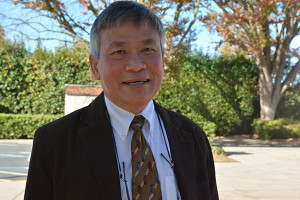(Matthew 9:35-38)
The heart of evangelism is having the compassion of Jesus described in Matthew 9:36, “He had compassion on them, because they were harassed and helpless, like sheep without a shepherd.” “Harassed” can be translated as “weary” and comes from a word that literally means “to be skinned”. It pictures a sheep helpless before its shearers. In the imagery, Jesus was revealing His compassion for the lost and how He felt about the religious leaders who were making it harder for people to come to God. They were “fleecing” the people by burdening them with temple taxes for their own personal gain. In order to make animal sacrifices, worshippers had to buy animals sold in the temple with currency exchanged with the money changers at a rate they prescribed. The religious system was broken because profits were put before compassion for people. Thus, He said in verses 37-38, “The harvest is plentiful but the workers are few. Ask the Lord of the harvest, therefore, to send out workers into his harvest field.”
“Harassed” can be translated as “weary” and comes from a word that literally means “to be skinned”. It pictures a sheep helpless before its shearers. In the imagery, Jesus was revealing His compassion for the lost and how He felt about the religious leaders who were making it harder for people to come to God. They were “fleecing” the people by burdening them with temple taxes for their own personal gain. In order to make animal sacrifices, worshippers had to buy animals sold in the temple with currency exchanged with the money changers at a rate they prescribed. The religious system was broken because profits were put before compassion for people. Thus, He said in verses 37-38, “The harvest is plentiful but the workers are few. Ask the Lord of the harvest, therefore, to send out workers into his harvest field.”
The religious system today is broken too. Compassion is replaced by “conversion” with evangelistic meetings. Those invited are expected to believe in Christ upon hearing a message. If we are honest, we will admit that these meetings often do not go as we hope them too, and they take a lot of time and money to plan and organize. However, we justify them by claiming that “even if one is saved, it is worth the effort and money spent”. It is true that we cannot put a price on a person’s soul. However, good stewardship and effectiveness demand that we must not “brush” these concerns away, because the resources are provided by our hardworking brothers and sisters. Our efforts are not for consoling ourselves that at least we are doing something, just as some give money to missions. The workers in the harvest field are not just evangelists and missionaries; they include people like you and me who must have compassion for the lost and be willing to reach out to them in our surroundings when opportunities arise. Thus, we must pray to God to fill our hearts with compassion for the lost and opportunities to share Christ for these lost ones.
Evangelistic meetings and giving money to mission work have their places in this effort to reach the lost; but our involvement in effectively harvesting souls is dependent on our relationships with those who are lost. Our relationship with them earns us the right to invite them to evangelistic meetings; and they will be more likely to come when we invite them. Cold-turkey street-evangelism is no longer practiced, because it does not work well today. Similarly, cold-turkey invitations to evangelistic meetings also do not work without a relationship with the people we invite. This is why friendship evangelism is the most viable method for evangelism. Friendship evangelism is not just building friendships for the sake to invite people to evangelistic meetings. It is cultivating and building friendships that allow nonbelievers to sense, and experience the love of Christ themselves through us, who are the instruments of God’s compassion to them. It gives us the “right” to speak and lead them to believe in Christ.
Therefore, we must not treat anyone as a “target” or goal for evangelism but must be true friends to them. If ever anyone is to show any signs of disinterest or unwillingness to listen or to believe in Christ, we must not stop being their friends. If they have the slightest sense that we are just befriending them to convert them for Christ, we will lose their friendship and any chance to speak to them about Christ, because they will feel that they are being exploited by us. Thus, if they do not have any positive response towards our efforts, we must not give up on them for we do not know when they will be ready to believe in Christ. But we must continue to be sincere and genuine in being a friend to them. The Bible says that Christ died for us while we were still enemies with Him. His compassion for us compelled Him to die for our sins. Let us be like Him, a friend of sinners.

Leave a Reply